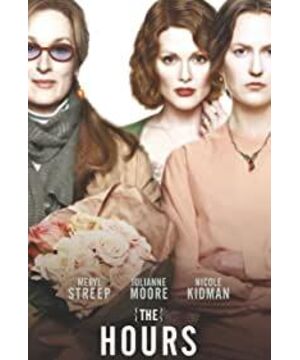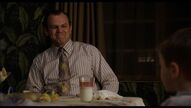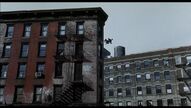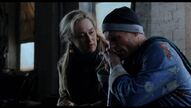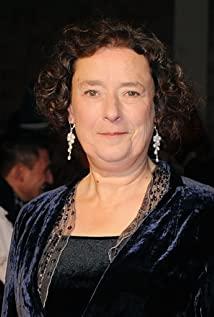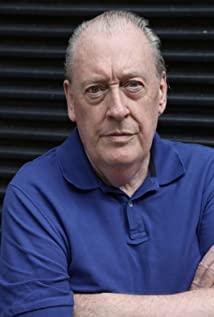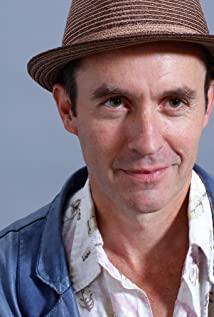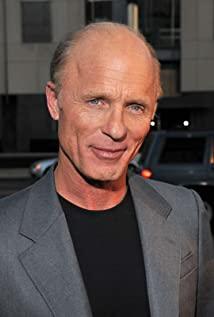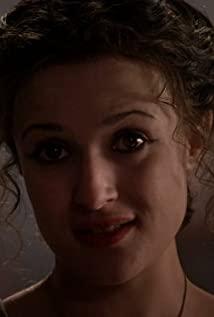Before discussing "Mrs. Dalloway", let's take a look at Virginia Woolf, the author of the novel and one of the main characters in "The Hours".
Virginia Woolf (January 25, 1882 - March 28, 1941). British female writer, and a representative writer of British stream of consciousness literature; considered to be one of the pioneers of modernism and feminism in the twentieth century. His representative works include Mrs Dalloway, The Waves and To the Lighthouse.
Virginia Woolf was born in London, England. Her father was a writer and critic, and she was deeply influenced by her father since childhood. Many of her works are related to her early years. Since her mother has 3 children and her stepmother has 4 children, there are often some contradictions and conflicts between the two groups of children. She later revealed in her autobiography Moments of Being that she and her sister Vanessa Bell were sexually assaulted by half-brothers George and Jared Duckworth . She suffered from mental disorders many times in her life, and her mother and father died one after another, which was an unbearable blow to her. Mrs. Dalloway is full of vivid depictions of morbid hallucinations.
Her marriage to her husband Leonard made her married life closely linked with her literary career. Without her husband's help and support, she might not have become one of the great writers. Leonard Woolf graduated from Cambridge University. He is talented and discerning. Rather than admiring Virginia's elegance, he admires Virginia's extraordinary wisdom. In his eyes, Virginia is a "wisdom virgin" who can only be seen from a distance and cannot be played with, and there is no secular sensuality attached to her at all. The mental trauma she suffered during her teenage years made her very disgusted or even abandoned her sexual life as an adult, and she was even more reluctant to have children. Leonard respected her wishes and maintained a sexless couple relationship with her. She puts art above all else. However, every time she completes a work, symptoms often appear. Fortunately, her husband was so considerate to her during her illness that she was so moved that in 1930 Virginia told a friend that without Leonard, she might have shot herself.
On March 28, 1941, Woolf, who could no longer bear the enormous pressure mentally, wrote a suicide note and threw himself into the river with stones in his pocket.
Some of the above are reflected in the movie. What is not mentioned in the movie is her sexual frigidity and serious mental problems caused by her childhood sexual assault and other experiences. Her personal life experience is the source of her spiritual thoughts and the root of her literary works, and her worldview and understanding of things all come from this. Reading "Mrs. Dalloway" on the background of her personal experience can make it clearer what the novel wants to express; watching Virginia Woolf in "The Hours" on top of this can better appreciate the character's heart.
Novel "The Hours"
The most subtle thing about this book is its structure and form, while the film follows the novel's direction and structure, using three paragraphs to describe the day of three women in different time and space. In 1998, Michael Cunningham's novel "The Hours" was published in the United States. Not only was the book an unprecedented commercial success, it also won the Pulitzer Prize for Fiction in 1999. Michael Cunningham, born in 1952, is well-known in the American literary world for his 1989 debut, "The House of the Last Days," and "The Hours" is his third novel. Different from his previous two works, "The Moment" is an experimental novel about Virginia Woolf and her masterpiece "Mrs. Dalloway".
Anyone who has seen the movie knows that in The Hours: Virginia Woolf lives in the early 20th century, Laura lives in the mid-20th century after World War II, and Clarissa lives in 2001. How to connect the three protagonists in a unified way is really the most attractive point. The author has put a lot of effort into the structure so that the whole story is tightly connected and not cluttered. There are many lines in this, which can be expanded one by one.
Root 1: As mentioned earlier, the novel or the name Mrs. Dalloway.
The second root: death, to be precise, suicide. Virginia Woolf has been trying to finally choose death, choosing to leave the meaningless life and world. Laura also tried to die, but she eventually turned back, and after giving birth to her second child, she ran away from the family and chose another way to be reborn. Clarissa was a witness to Brown's death. Brown, who suffered from AIDS, insisted on living for Clarissa for so many years, and finally chose to commit suicide and die. When Virginia Woolf wrote the book, she said that someone must die "the poet will die", predicting the death of the poet Brown. The attitude towards death in "The Hours" basically inherits Woolf's attitude in "Mrs. Dalloway": death is a way for a person to obtain happiness, and suicide is a way to sublimate life.
Regarding death, there are many classic lines in the film (see the attached article)
The third line: homosexuality
Virginia Woolf is definitely gay and she's tortured by it herself, Clarissa is bisexual, but I can't agree more about Laura being gay. But one thing I can agree with is that everyone has a bit of homosexuality in their bones, and it depends on who has the upper hand with heterosexuality or a tie. To a certain extent, the love between women and women is purer and more intimate, and when they are together, they are more self-centered and authentic. The more advanced the times, the more lace edges, this is also normal, because people's feelings are more and more complex and delicate. It's accurate to say that men and women are from different planets, so women from the same planet come together to make love, and sometimes homosexuality is the most vulnerable inner calling and the last line of defense. Just like in "The Hours", when Virginia is on the verge of breaking down, she will kiss her sister; Laura kisses her pretending to be happy and calm when she finds out that her girlfriend is seriously ill; Clarissa asks her live-in girlfriend from her live-in girlfriend when she is reimbursed at Brown's suicide party. kissed. But it has to be said that as a female work, discussing homosexuality seems to be a very important part and a gimmick. This is like in today's fashion industry, many designers or models will claim that they are gay, so that there will be more FEEL for fashion people, in fact, maybe TA is a straight heterosexual. A novel with women as the theme, with homosexual content, seems to be labeled, and it tastes good. From another perspective, it is very important to leave blank spaces in literary works, especially novels. If the author imposes his will on the reader too much in the work, it will lead to incompatible disgust. The more white space there is in a good work, the more room for appreciators to discuss, the more in line with the viewer's psychology, and the more successful it will be.
The fourth line: the meaning of life
This point actually corresponds to the previous line of "death". If you cannot find the meaning of life, you will have the desire to die.
When Leonard found Virginia fleeing at the station, the two quarreled. Virginia could no longer endure the barrenness and desolation of Richmond, and wanted to go back to London; Leonard asked her to stay, and London would only damage her spirit again. Virginia was almost hoarse about 'My life's been stolen from me. I am living in a town that I have no wish to live in. I am living a life that I have no wish to live.' 'I wish for your sake I could be happy in this quietness. But if it is a choice between Richmond and death, I choose death.' She's not obligated to eat the servant's meal and if she doesn't want to eat, she's not obligated to endure it because Leonard did it all for her Boring in Richmond. In fact, for Virginia, the so-called "love" around her is her curse at all. Her thoughts are not truly respected, and she can't stand it. Her life didn't have the meaning she wanted.
And Laura, a seemingly peaceful housewife, her self, never existed. It seems that Laura is living a happy life, loving her husband, smart and lovely son, carefree food and clothing, in fact, she is like a dispensable doll. Her husband loves her, she is that quiet and beautiful girl who reminds her husband on the battlefield; no matter what she does, her husband will praise her for doing well. Her soul has not been valued, she lacks the true sense of self, as if she is just a role in the happy life of others, what is the difference if it is played by another soul. When she read "Mrs. Dalloway", a hidden compartment in her heart was opened, and death was a reasonable way to escape. However, she still stayed for the child in her womb, and finally used the way of running away to find herself. At the end of the credits Laura says to Clarissa 'It won't be wonderful to say you are regretted. It would be easy. But what it mean? What it mean to regret, when you have no choice. It's what you can bear. There is no one to forgive me. It was death, I chose life.'
As for Clarissa, my thoughts and some comments sway. There are comments that in the Clarissa line, it is Brown who chooses to die, and he is the one who really echoes Virginia and Laura in this line. This makes sense, but if this is the case, the author could have set Laura's daughter named Clarissa, a poet, and a man who took care of her for ten years. In the end, she committed suicide by jumping off the building. Personally, I think the author's setting is valuable. Discussed in detail in the fifth thread. As far as the meaning of life is concerned, Clarissa is actually living for Brown. She throws a party, she's busy and she wants Brown to cheer up. Brown is the carrier of her fond memories of her youth. Although Brown chose Louis, a gay man, isn't this youth and Brown the driving force behind her supporting Clarissa? When Brown's ex-gay boyfriend Louis shows up to mention Brown's book and where he used to live, Clarissa suddenly collapses and crouches and weeps. Yes, what is the meaning of everything she has done, these ten years, this party, her own life? Maybe she is just a substitute for him to replace Mrs. Dalloway's fantasy in Brown's life, just a carrier of his sadness about his mother's departure. Has she really been carefully weighed? Louis finally escaped from Brown, and she chose to live like that for ten years. Brown's death is actually the beginning of a new life for Clarissa, and the meaning of her life needs to be redefined and rethought.
The fifth thread: the progress
of women As a work of women, it should reflect the progress of women.
In the early 20th century, Virginia Woolf was still " imprisoned" in Richmond by her husband who loved her; Laura in the 1950s lived in a happy "fairytale castle" built by her husband; in the 21st century, Clarissa could be with a woman without getting married. She doesn't know who the mother who lives with her daughter's father is.
Virginia Woolf finally chooses to die; Laura chooses to flee; Clarissa chooses to start a new life in place. This is something that I personally find very important. Virginia feels that there is really no reason to live. As a woman, she was sexually assaulted at a young age and has a bad memory of her personality growth. She feels that death is the best choice for her in the world. Although Laura lived by her husband and tried to maintain the surface peace, she finally found herself, went to Canada alone, and became a librarian. In any case, she did not choose to give up her life, which is a kind of progress. When she came to Clarissa, her life seemed to be dominated by a man, but she could be more autonomous, she could even choose to fall in love with a woman, in the end, what she got was a new life, she did not choose to end her life or escape, she Start anew, a new life in the place you already have. Let's start with the screenwriter of
the movie "The Hours" .
David Hare David Hare
David started his career in stage play and is well known in the UK. His works mainly reflect the British reality. After turning to film production, he was excellent in writing and directing. His 1985 debut "Wetherby" (Wetherby) was adapted from his own stage play, which was awarded at the Berlin Film Festival that year. Those who change from stage plays to screenwriters often have a sense of situation, the sense of drama of the story will be stronger, and the readability of the adapted script will be higher. This time he adapted the dialogue of "The Hours", which was deeply loved by actors and audiences.
Besides, the director, this is too important. Stephen Daldry Stephen Daldry
So far, British director Steven has only made 3 films, "Dancing Life", "Moment", "Reading Life and Death", but each film has been nominated for the best director Oscar, and Nicole • Kidman and Kate Winslet are Oscar winners. However, at first he only played the clown in the theater, and later entered the Royal Opera House as artistic director, and finally won the "Tony Award", the highest award in American theater. "All the time" and "Reading Life and Death" are both films adapted from novels, and both received great acclaim. When talking about the relationship between novels and movies, he said: "Books are just a way to tell stories, Films are another way of telling a story. When you choose a book for filming, you have certain advantages, there are plenty of resources to use, but it’s also a burden.
” Steven is a very smart director. He chose a good book, used a good screenwriter, asked for great actors, and coupled with his own directing talent, a good film came out as the times required. He started from the stage play, and the characteristic reflected in the film is delicacy. The actions, eyes and expressions of the characters have been processed very delicately, and the performance is in place. The stories of the three different eras are also very distinct in their performance, depicting the characters and characters of the era well.
music.
Throughout the film there is a piano sound that accompanies the plot. There is turbulence hidden in the gentle tone, as if the cloudy weather is a little sultry, as if it indicates that there will be a strong wind and rain, the overall is still very low, and complements the development of the plot. The music in the film, like the main line of the story, spans three eras, but applies to all the protagonists and their moods. The piano is a soft-sounding instrument, like the softness of a woman, but the surging power when the melody is exciting is also like the emotion when a woman's self-consciousness bursts out. The piano soundtrack is really just right.
actor
The three leading actresses were already big names when they were filming, which can be described as super luxurious plastic surgery. Nicole Kidman divorced Tom Tom in 2000, and made the movie "The Hours" in 2002. I wonder if the experience of divorce made her understand life better. When she played Virginia Woolf, she really worked hard. To be honest, I didn't really see it was Nicole at first. I put a lot of effort into the makeup and the performance. It showed Virginia Woolf's sensitivity and neuroticism very vividly. Although it deviates a bit from Woolf's beautiful image, it still fits very well. video theme. Julianne Moore Julianne Moore is actually a strength, but has been tepid and not popular. When Moore was filming "The Hours," her character's pregnancy was in exactly the same physical state as her own, which was a godsend. But the tragedy is that at the Oscars that year, her other very good work, Far From Heaven, was also shortlisted. Her performance in the two films was indistinguishable, and there was a tragedy in which the main and supporting roles were nominated at the same time. As for Mei Gu, Meryl Streep, she has been very familiar in recent years. Everyone must remember the "devil" wearing PRADA. Her performances are always in place and subtle. Personally, I think her face is very suitable for performances. Whether it is unkempt or oily, it is very convincing and realistic. Clarissa is not a good character to play. The part where she prepares to talk to Louis at a party is really very classic.
This is a story that travels through three centuries, from Virginia Woolf in the 19th century to Laura in the 20th century to Clarissa in the 21st. This is a stalwart film standing on the shoulders of its predecessors. From the novel "Mrs. Dalloway" to the novel "The Hours" to the movie "The Hours", they also follow the creator across three centuries.
This is a movie that travels through three centuries - "The Hours"
with: classic lines about "death"
1. Woolf's letter to Leonard before his death
Dear Leonard: To look life in the face, always, to look life in the face and to know it for what it is. At last to know it, to love it for what it is, and then, to put it away. Leonard , always the years between us, always the years. Always the love. Always the hours. 2. Woolf
prepares the bird's funeral with her sister's daughter
Woolf: Do you think she like roses?
Little girl:Is it she?
W: Yes, the females are larger and less colorful.
L: What happened if we died?
W: What happened?
We returned to the place where we came from.
L: I don't remember where I came from.
W: Nor do I .
L: She looks very small
W: Yes. That is one of the things that happen. We look smaller.
L: But very peaceful.
3. When Laura was about to commit suicide in the hotel, she took out "Mrs. Dalloway" and started reading
Did it matter? Then she asked herself.
Walking toward Bond Street.
Did it matter that she must inevitably
Seize completely.
All of this must go on without her.
Did she resent it?
Did it not become consolely to believe that death
Can end absolutely.
Is it possible to die?
It is possible to die.
4.Woolf and Leonard discuss death
L: Why there is someone has to die?
W: Leonard
L: In your book, you said someone had to die. Why? This is stupid question?
W: No
L: Leonard. My question is stupid.
W: Not at all.
L: Well?
W: Someone has to die in order that rest of us value life more.
It's contrast.
L: And who will die, tell me?
W: The poet will die.
View more about The Hours reviews


